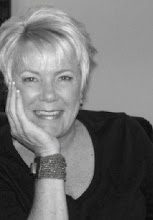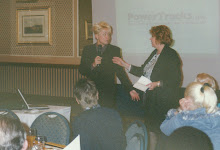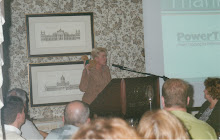There is something miraculous about demarcation points, where some things are left behind and new things are on the horizon. 2010 is one of those years where fantastic things are now in the process of becoming a reality – provided you believe they are. This notion may run counter to what we read and hear about in the news. But as the saying goes, what you dwell upon expands. Consequently, if you dwell upon the bad, it becomes larger just as when dwelling upon the good also enlarges. So, if what you think about is your lack of love, money, or a great career, guess what? You will continue to attract more lack of love, money, or a great career. Want to attract love, money, or a great career? Then you must think about how one or all of the things you want are currently being drawn to you. Keep that thought in your mind. Banish, completely, any thoughts that bad things will happen or that something stands in the way of you getting what you want.
In 1963, Dr. Joseph Murphy’s groundbreaking book, The Power of Your Subconscious Mind, offered the timeless secret of how to attract everything you want into your life. Today, this secret still holds true. He wrote:
Whatever thoughts, beliefs, opinions, theories, or dogmas you write, engrave, or impress on your subconscious mind, you shall experience them as objective manifestation of circumstances, conditions, and events. What you write on the inside, you will experience on the outside.
Like me, I am sure you know people who have it all – health, wealth, and happiness. Are they really that much different than you? The answer is: likely not. The only difference, then, is that they expect the best to happen and it does. Remember always: What is written on the inside will be experienced on the outside. You have a choice of what you write on the inside and once you do, your subconscious takes over and makes certain that what you ask for appears. I wrote about this in my last blog but as we enter a new period, it needs to be stressed now more than ever. As you think about what you want, not what you don’t have, you will begin to see miracles. People and things will show up exactly when you need them to have them realize what you envision. It is then especially important that you are careful for what you wish because as you dwell upon something, it will come into realization. Here are some helpful tips for guiding your subconscious mind to attract what you want:
1. Be specific in what you want. If you want a new job, write out exactly what you expect from the new job. The act of writing will help you better formulate the work you want to do and the things you do best. Review it, amend it, and when it reads exactly how you want, spend 3-5 minutes a day envisioning how you feel in your new job (or a living in a new city or home, or being handed that award). Feel it as it is happening.
2. Concern yourself only with the fact that everything is currently coming into alignment to produce the results you want. Do not worry about the details as to how it will come to be but dwell only on the fact that what you want will be.
3. Pay close attention to chance meetings, a statement someone makes, or something you read or hear about. These are opportunities that are leading you in the direction of your desires.
We are the brink of a new year and a new era. You have, at this very moment, the power to attract what you want into your life. When you allow your subconscious mind to do the heavy lifting in your life, you will begin to see the miracle that is your life.
Happy New Year, everyone!
Executive Onboarding Note: The Importance Of The Confidence To Be Open To
Help
-
While executive onboarding, get help. If it’s offered, take it. If it’s not
offered, find it.
The post Executive Onboarding Note: The Importance Of The C...
6 years ago



